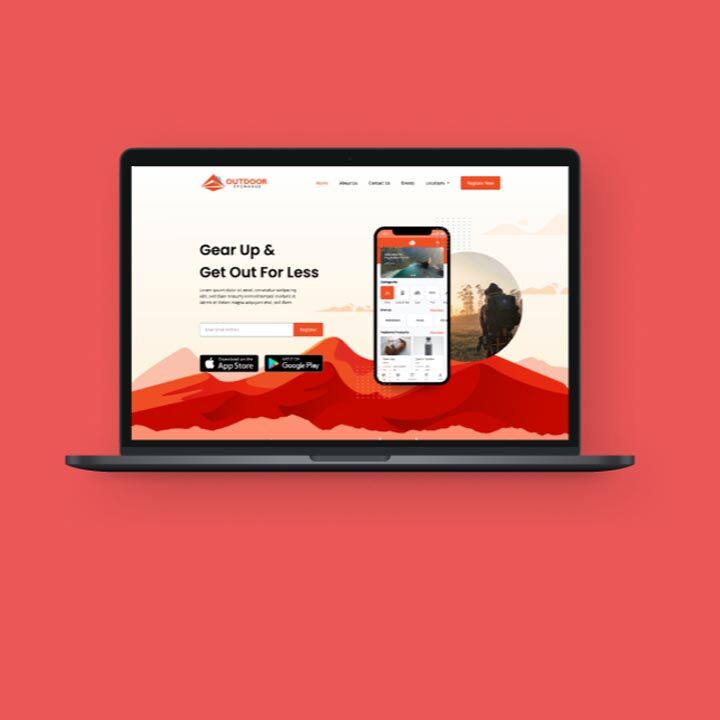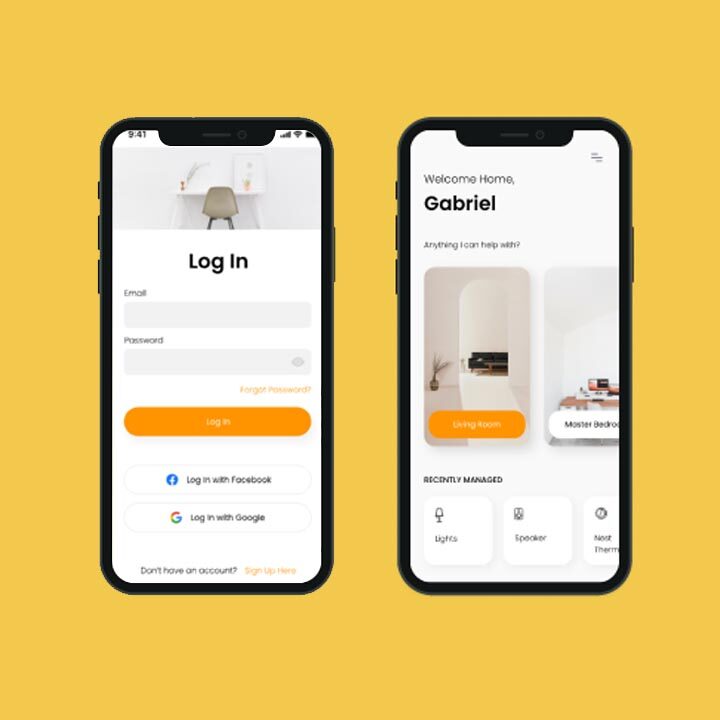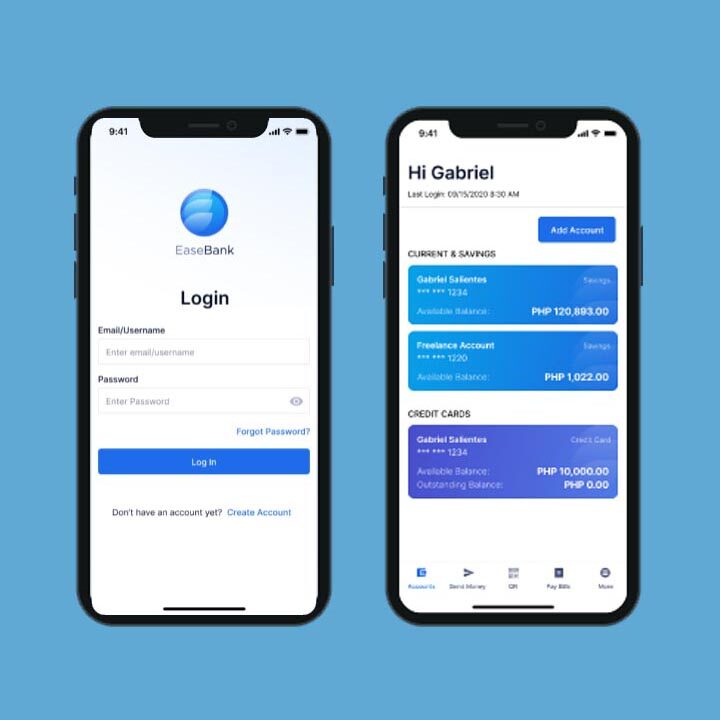Is Mobile App Development Important?
You might be wondering what’s the importance of mobile app development. Well, let’s take a look at some numbers. In 2017, there were almost 200 billion app downloads, and by 2021 that number is expected to grow to 352 billion. That’s a lot of apps!
And with so many apps available, it’s more important than ever to have an app that stands out from the rest. A well-developed mobile app can help you reach new customers, increase brand awareness, and boost your bottom line. But, it doesn’t stop there. Let’s tackle it piece by piece to understand it better, so keep reading!
What is Mobile App Development


It’s a process by which a Mobile app developer creates a software application for small, wireless computing devices such as smartphones and tablets. The term “app” shortens the word “application.”
Mobile app development can be divided into three stages: pre-development, development, and post-development.
Pre-development is the stage in which an idea for a mobile app is conceived. This is usually done by a business or individual who wants to create an app for a specific purpose.
The next stage, development, is when the actual coding and creation of the app take place. This is done by a team of developers who turn the idea into a reality.
The last stage, post-development, is when the app is made available to the public. Again, this is typically done with the use of an app store.
Mobile app development is a dynamic and ever-changing field. New technologies and platforms are constantly being created, so there is always something new to learn.
Types of Mobile Apps


With so many mobile apps, deciding which ones are best for you can be challenging. But this list will help you get started!
1. Productivity apps: These apps help you get things done! They can be great for managing your time, keeping track of to-do lists, and staying organized. Some popular productivity apps include Evernote, Trello, and Todoist.
2. Entertainment apps: These apps are all about fun! They can include games, streaming services, and social media platforms. Some popular entertainment apps include Netflix, Spotify, and Instagram.
3. Social media apps: These apps help you stay connected with friends and family. They can also be an excellent way to follow your favorite celebrities or public figures. Some popular social media apps include Facebook, Twitter, and Snapchat.
4. Shopping apps: These apps make it easy to shop for items online. They can compare prices, find deals, and order products. Some popular shopping apps include Amazon, eBay, and AliExpress.
5. Travel apps: These apps can help you with everything from booking flights and hotels to finding the best restaurants and activities in your destination. Some popular travel apps include TripAdvisor, Kayak, and Google Maps.
6. Health and fitness apps: These apps can help you track your fitness goals, monitor your progress, and find healthy recipes. Some popular health and fitness apps include MyFitnessPal, Fitbit, and Endomondo.
7. Education apps: These apps can help you learn new things or brush up on old skills. They can be great for studying for exams, preparing for a presentation, or learning a new language. Some popular education apps include Duolingo, Khan Academy, and TED Talks.
8. News apps: These apps keep you up-to-date on the latest news and events worldwide. They can be a great way to stay informed about current affairs or learn about new topics. Some popular news apps include BBC News, The Guardian, and CNN.
9. Weather apps: These apps provide you with accurate information about the current weather conditions in your area. They can help plan your day, check the forecast for upcoming events, or track a storm. Some popular weather apps include Weather Underground, The Weather Channel, and AccuWeather.
10. Photography apps: These apps help you take better photos and edit them to perfection. They can be great for capturing memories, improving your skills, or creating beautiful artwork. Some popular photography apps include Adobe Photoshop Express, VSCO Cam, and Afterlight.
These are some of the mobile apps that you can significantly benefit from.
Reasons behind the growth of Mobile App usage
- The Increasing Use of Smartphones:
One of the main reasons for the growth of mobile app usage is the increasing use of smartphones. Presently, smartphones are no longer a luxury item – they have become a necessity for many people. This is because they offer many features and functions that make our lives easier. For example, we can use them to stay connected with our friends and family, access the internet, get directions, find businesses, and so much more.
- The Growing App Market:
Another reason behind the growth of mobile app usage is the growing app market. There are now millions of apps available to us, meaning there is an app for just about everything. So whether we want to book a hotel room, order a takeaway, or find a new recipe, there is an app that can help us. This abundance of choices means that we are more likely to find an app that suits our needs and lets us get the most out of our smartphones.
- The Convenience of Mobile Apps:
Mobile apps are also growing in popularity because they are incredibly convenient. We can use them to do things that would otherwise be difficult or time-consuming, like booking a table at a restaurant or ordering a taxi. They also allow us to access information and services on the go, which is perfect for busy lifestyles.
- The Rise of Mobile Payments:
Another factor driving the growth of mobile app usage is the rise of mobile payments. This technology allows us to make payments using our smartphones, which is convenient and secure. For example, with mobile payments, we can make purchases in-store or online without having to carry cash or cards. This is useful for people who are always on the go.
- The Growth of Augmented Reality:
Augmented reality or AR is another emerging technology that is starting to impact mobile app usage. AR allows us to view digital information superimposed on the real world. For example, we can use AR to view a map of our current location or get directions to our destination. While shopping, we can also use AR to view product information, such as prices and reviews.
- The Popularity of Messaging Apps:
One type of app that has seen particularly strong growth in recent years is messaging apps. These apps allow us to stay in touch with friends and family without making a phone call. They are also convenient for sending quick messages or sharing photos and videos. Popular messaging apps include WhatsApp, Facebook Messenger, and Snapchat.
- The Increase in App Downloads:
Another sign of mobile app usage growth is the increase in app downloads. In 2017, there were 194 billion app downloads worldwide, representing a year-over-year increase of 24%. This growth is driven by the increasing use of smartphones and the growing app market.
- The Growth of In-App Purchases:
In-app purchases are also becoming more popular, as they offer a convenient way to buy digital goods and services. For example, we can use in-app purchases to buy new levels in a game, make a charitable donation or subscribe to a service. In-app purchases are typically made using a credit card or PayPal account.
- The Growth of Mobile Advertising:
Mobile advertising is another factor driving the growth of mobile app usage. This type of advertising allows businesses to reach their target audience on their smartphones. It is usually delivered through banner ads, pop-ups, or video ads. Mobile advertising is growing in popularity because it is highly effective and efficient.
The future of mobile apps looks bright. The market is growing fast, and many new technologies are starting to have an impact. As a result, we can expect to see more app downloads, more in-app purchases, and more mobile advertising in the years to come.
The Benefits of Having a Mobile App for Your Business


More and more businesses are choosing to develop a mobile app to improve their customer experience. Mobile apps provide an easier way for customers to connect with businesses and offer several other benefits to help businesses grow and succeed. Here are ten benefits of having a mobile app for your business.
1. Mobile apps improve customer engagement.
Mobile apps provide a more convenient and interactive way for customers to connect with businesses. Customers can easily access the app to make purchases, book appointments, or get support without going through a website. That makes it hassle-free and more enjoyable for customers to engage with businesses, leading to more sales and loyal customers.
2. Mobile apps offer real-time notifications.
Another great benefit of mobile apps is that they offer real-time notifications. Businesses can instantly notify customers about sales, promotions, or new products. Customers can also opt-in to receive notifications, so they will never miss an update from their favorite businesses.
3. Mobile apps provide valuable data.
Mobile apps offer a wealth of data that can be used to improve business operations. For example, businesses can track how customers use the app, what features they use the most, and what areas need improvement. This data can be used to make strategic decisions that will help businesses improve their app and meet the needs of their customers.
4. Mobile apps offer a personalized experience.
Mobile apps offer a more personalized experience than websites. Businesses can use data from the app to personalize the user experience and offer targeted content and recommendations. This helps businesses build better customer relationships and encourages them to use the app.
5. Mobile apps are convenient for customers.
Customers can use mobile apps to make purchases, book appointments, or get support from businesses anytime and anywhere. This is a significant benefit for customers who are always on the go and need to be able to access businesses from their mobile devices.
6. Mobile apps are efficient for businesses.
Mobile apps are much more efficient for businesses than traditional methods, such as phone calls or face-to-face interactions. Customers can use the app to quickly and easily get the information they need without having to wait on hold or schedule an appointment. This saves businesses time and money, which can be used to improve other areas of the business.
7. Mobile apps build brand awareness.
Mobile apps are a great way to build brand awareness for businesses. Whenever a customer uses the app, they are reminded of the business and what it has to offer. This repeated exposure can help businesses attract new customers and grow their business.
8. Mobile apps improve customer loyalty.
Mobile apps offer several features that can help businesses improve customer loyalty. For example, app users can provide loyalty rewards, discounts, or exclusive content. This helps encourage customers to keep using the app and remain loyal to the business.
9. Mobile apps encourage customer referrals.
Mobile apps make it easy for customers to refer businesses to friends and family. In addition, customers can simply share the app with their contacts, which can help businesses attract new customers.
10. Mobile apps are cost-effective.
Another great benefit of mobile apps is that they are cost-effective. Businesses can develop and launch an app without breaking the bank. Many businesses find that the cost of developing and launching a mobile app is offset by the increased sales and customer loyalty they experience.
It should be clear that mobile apps have many benefits for businesses. Mobile apps offer several advantages to help businesses improve their operations and grow their customer base.
Helpful tips for creating a successful Mobile App


Creating a mobile app can be extremely rewarding, both personally and financially. But it’s not an easy task – a lot goes into making a successful app. Here are ten tips that most mobile app developers believe are important for anyone who wants to create an app.
1. Do your research
Before you start coding, it’s essential to do your research and figure out what kind of app would be successful. What are people looking for? What does the app market look like? What are your competitors doing? These kinds of questions will give you an excellent foundation to start from.
2. Figure out your target audience
Who is going to use your app? First, it’s essential to figure out who your target audience is and what they want from an app. Once you know who you’re targeting, you can start to cater your app to them.
3. Keep it simple
Don’t try to do too several things with your app. The best apps are usually the simplest ones – they don’t try to do everything but do one thing well. Instead, figure out your app’s primary purpose and ensure everything else supports that.
4. Make it visually appealing
People are visual creatures – we’re more likely to use an app that looks good than one that doesn’t. So spending time making your app look great will pay off in the long run.
5. Use high-quality images
If you’re using images in your app, ensure they’re high quality and look good on various devices. Indeed, there’ll be no one who wants to use an app that has pixelated images or doesn’t look good on their phone.
6. Test, test, test
Before launching your app, it’s important to test it thoroughly. Get some friends, family members, or colleagues to try it out and give you feedback. Also, ensure no bugs or glitches need to be fixed.
7. Promote your app
Once your app is done and launched, you need to start promoting it. Spread the word out there through social media, advertising, and any other means you can think of. The more people know about your newly launched app, the more successful it will be.
8. Offer customer support
If someone has a problem with your app, you need to be there to help them solve it. Offering customer support shows that you care about your app and its users.
9. Constantly update your app
The mobile world is constantly changing, and your app needs to change. So keep your app up to date with the latest trends and technologies.
10. Never stop improving
There’s always room for improvement. So keep working to make it better and better. These ten tips will help you create a successful mobile app, but remember that there’s always more to learn. So keep learning and expanding your knowledge, and you’ll be sure to find success.
So, what are you waiting for? Get started on your mobile app development project today! Mobile apps are a powerful way to reach customers and increase sales. With such various devices and platforms available, there’s no reason not to have a mobile app for your business.







